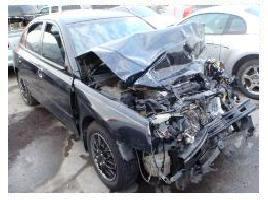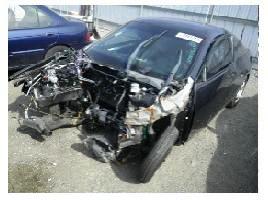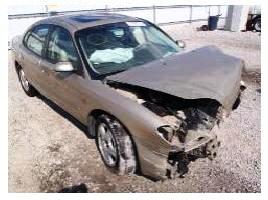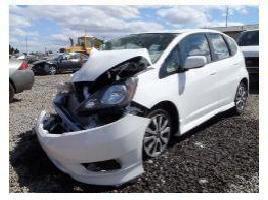Ask an Attorney a Question for FREE!
Determining fault from an insurance company's perspective
Richard Submitted a question about his Texas Auto Accident regarding how insurance adjusters go about determining fault. See his question "determining fault" by going here.
---
Answer:
Hi Richard,
We can clearly see how your accident happened. There are several questions in your submission, so we will answer one by one.

When there is dispute of facts, do the insurance companies take their clients version of events as gospel?
Your question is a very good one. The legal theory is that an adjuster must advocate for their own clients version of events, in other words they must believe them.
However, they must look at all the evidence and then make a judgment based on those findings.
You accident sounds like it is not a word v. word situation.
You do have a police report and damages to the vehicles. A good insurance adjuster will want to see both.
They do not have too, but they know if the case goes to arbitration they would lose. If in looking at the damage, it is impossible or very unlikely that the accident would happen the way their client is telling them, then they would make a decision on your favor.
The police report usually is considered only evidence. A strong indication of who was at fault, but adjusters can disagree with it and not account for that.

An illegal U turn is a very strong duty breached on the part of the driver. Most courts arbitration panels, mediations will put a very heavy consideration to that.
Having a citation against the other can win your case somewhat easily.
To summarized: is it gospel? In a purely word v. word situation where the damages cannot tell either way, then answer is yes!
However, with other evidence the other party statement can be defeated.
How do insurance companies determine fault?
They must look all the facts of the accident, including the police report and damages, look at the Texas statutes regarding the rules of road, and attribute it to who had the most to do with the accident. Read more about negligence determination here.
There is one thing you need to have present when dealing with the insurance company.
Texas is a modified comparative state that applies the 51% rule. That means that if they found you 51% or more, they will owe you nothing for your damages. The adjuster of the other party will try to put at least 51% fault on you.

From the other party version of events, it is likely that they will try to put negligence on you for speed (assuming that the speed limit was less than 60mph).
That is what we anticipate could be their argument. Remember that they must show evidence of speed, and that often is very hard to do (one of the reason why police officers do not give many speeding tickets in car accidents) they almost have to have a radar gun before you collide.
They can estimate speed judging by damages and other things, but usually adjusters do not get into that unless the loss involves fatalities.
Also remember that even if this person made a U turn, you tried to avoid and came back into the road and hit them, they remain the cause of the accident.
They were the proximate cause of the accident. The fact that you tried to avoid shows that you were paying attention and that you fulfilled your duties as a driver. You have a duty to try to avoid. You tried, you just were unsuccessful on doing that.
Regarding damages:

Make sure you pick a reputable bodyshop.
Ask to see the estimate and review it. Take it to your mechanic and have them look over it and see if they agree that is all that needs to be done.
The day that they return your car, drive to a mechanical inspection and have them look over the damage.
If there is mechanical damage, then call the insurance company and submit those documents. Do not wait too long. They will try to tell you that they are not sure if you caused the damage some other day.
Good Luck,
Casey & Héctor.
|
For a Free Review of Your Case
Please Call (866) 878-2432 |


